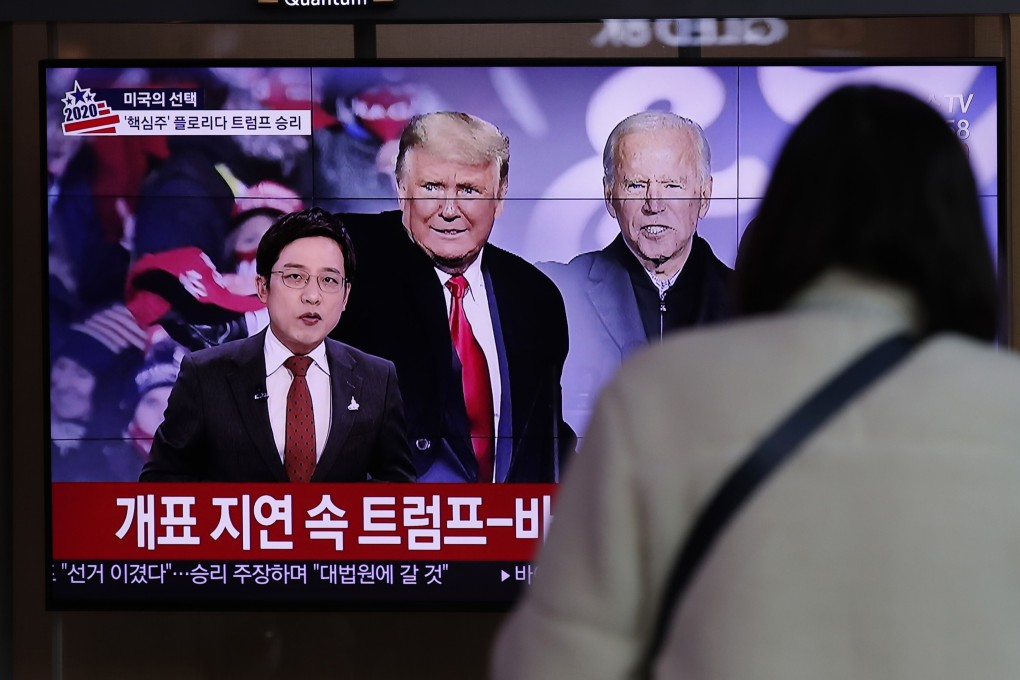Advertisement
Asia shrugs off chaotic US election but braces for potential knock-on effects
- Lack of decisive victory in Trump-Biden presidential battle fails to impact regional markets
- Analysts attributed the muted reaction in Asia to experience in dealing with uncertainty surrounding Trump the last four years
Reading Time:4 minutes
Why you can trust SCMP

The chaos of election night in the US induced head-scratching across Asia on Wednesday, with the twists and turns involved in the vote-counting process – as well as seeming rival claims of victory – part and parcel of the messy outcome that was largely anticipated by the region’s investors and political punditry.
Speaking to South China Morning Post reporters across Asia, observers and analysts said buoyant regional markets on Wednesday reflected the distinct lack of panic in the region.
Still, there remained some anxiety among them about the knock-on effects for security in flashpoint regions such as the Taiwan Strait and the Korean peninsula if Washington remains distracted with internal political machinations for an extended period.
As of press time, reports said the outcome could be decided based on the final results in a handful of states – Pennsylvania, Michigan, Wisconsin, Arizona, Georgia and Nevada.
Advertisement
The New York Times’ projection of electoral college votes showed President Donald Trump with a tally of 213 to Democratic nominee Joseph R. Biden Jr.’s 227 – with the question of who would obtain the victory threshold of 270 still unclear.
Trump falsely claimed victory over Biden in a statement from the White House just hours after polls closed, even though millions of votes had yet to be counted at that point. Earlier, Biden urged patience from his supporters as ballots were being counted, saying “we believe we’re on track to win this election”.
Advertisement
Michael Witt, professor of strategy and international business at Insead in Singapore, told the Post that Asia’s muted reaction to the chaotic election aftermath was down to its experience in dealing with uncertainty throughout the last four years of Trump’s presidency.
Advertisement
Select Voice
Select Speed
1.00x